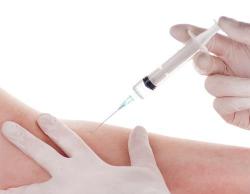Two back to back articles in the March 26, 2012 issue of the New England Journal of Medicine show bariatric surgery to be more effective than intensive medical therapy when it comes to glycemic control. Pardon the pun, but this is BIG.
Two back to back articles in the March 26, 2012 issue of the New England Journal of Medicine show bariatric surgery to be more effective than intensive medical therapy when it comes to glycemic control. Pardon the pun, but this is BIG.
The studies, one American and one Italian were both randomized, but not blinded (it is hard to blind a surgical versus a non-surgical intervention). Both were relatively small (150 patients in the American study and 60 in the Italian study). And, both were relatively short term (12 months in the American study and 24 months in the Italian study). Nevertheless, the results are dramatic.
The American study (funded by the manufacturer of endoscopic surgical instruments) with the acronym, STAMPEDE (Surgical Treatment and Medications Potentially Eradicate Diabetes Efficiently), compared the outcomes of three interventions: gastric-bypass, sleeve-gastrectomy, and intensive medical therapy (IMT). People in this study had diabetes for a duration of about eight years on average. By and large, they were badly out of control with a mean HbA1c of 8.9-9.5%.
All of the surgeries were performed laparoscopically by a single surgeon. The intensive medical therapy group received lifestyle counseling, weight management, frequent home glucose monitoring and the use of medications, including incretin analogues. The primary end point of the study was the proportion of patients in each group that achieved a glycated hemoglobin of 6.0 or less 12 months after the treatment.
Here is what they found:
- Only 12% of the 41 patients assigned to IMT achieved the goal compared to 42% in the gastric bypass group and 37% in the sleeve gastrectomy group
- Weight loss was greater in the surgically treated patients (a mean of 29 kg in the bypass group and 25 in the sleeve group) compared to the IMT group (5 kg).
- The use of drugs to lower glucose, blood pressure and lipid levels decreased significantly in the surgical groups, but increased in the IMT groups.
- Rates of high blood insulin levels and the HOMA-IR index improved significantly in the surgical compared with the IMT groups.
- Importantly, markers of cardiovascular disease, such as HDL and C-reactive protein, also improved in the surgical groups compared to the IMT group.
The Italian study also compared two surgical interventions (gastric bypass and biliopancreatic diversion) to medical therapy. The patients in this study were between the ages of 30 and 60 with a BMI of 35 or greater, a glycated hemoglobin of > 7% and a duration of diabetes of at least five years. Medical therapy consisted of 6 planned visits over 24 months, optimization of medications, a diet and exercise program, and supervision by a multidisciplinary team (diabetologist, dietician, and nurse). The primary end-points of the study were a fasting glucose of
- All patients in the surgical groups were able to stop taking diabetes medications within 15 days of having the operation.
- 75% of patients that had a gastric bypass and 95% of those with a biliopancreatic diversion achieved the predetermined end-points described above. Not one of the patients in the medical therapy group achieved those end-points.
- Two years after the start of the study, mean HbA1c was 7.69 in the medical therapy group, 6.35 in the gastric by-pass group, and 4.95 in the biliopancreatic-diversion group.
- Weight loss was dramatic in the surgical groups (33-34%) versus only 5% for the medical therapy group.
- Lipids profiles improved in all groups, but there was no significant difference between the gastric bypass and medical therapy group. The patients undergoing biliopancreatic diversion had significant improvement compared to the medical therapy group. It was noted that there were significant pre-treatment differences in lipid profiles between the groups as a result of random allocation of the patients into each of the treatment groups.
There were no death in any of the groups and complications were not serious – at least compared to the complications of inadequately controlled diabetes.
Paul Zimmet MD, PhD and George Alberti, DPhil., respectively of the Baker IDI Health and Diabetes Institute in Melbourne Australia and Kings College in London, in an accompanying editorial discuss their reservations about whether bariatric surgery should be considered a “universal panacea for obese patients with type 2 diabetes.” First, they point out, surgical complications and potential micronutrient deficiencies, although low in “practiced hands,” could be more prevalent if the intervention becomes more widespread. Second, because of the short duration of the studies we do not know if the remissions achieved in fact represent long term cures. And finally, we don’t yet have enough information to know whether this approach is warranted in all obese diabetics, particularly those with a lower BMI.
I am heartened by these studies. Although diet, exercise, and weight loss are clearly important for people with or at risk for Type 2 diabetes, achieving levels of these interventions that are effective in preventing or controlling the disease is notoriously difficult for a number of environmental reasons (prevalence of calorically dense fast food, sedentary workstyles, and so forth). It is finteresting that the treatment of diabetes, long the purview of the internist and family physician may one day (soon) be best treated with surgery.
Here are links to each of the references:








